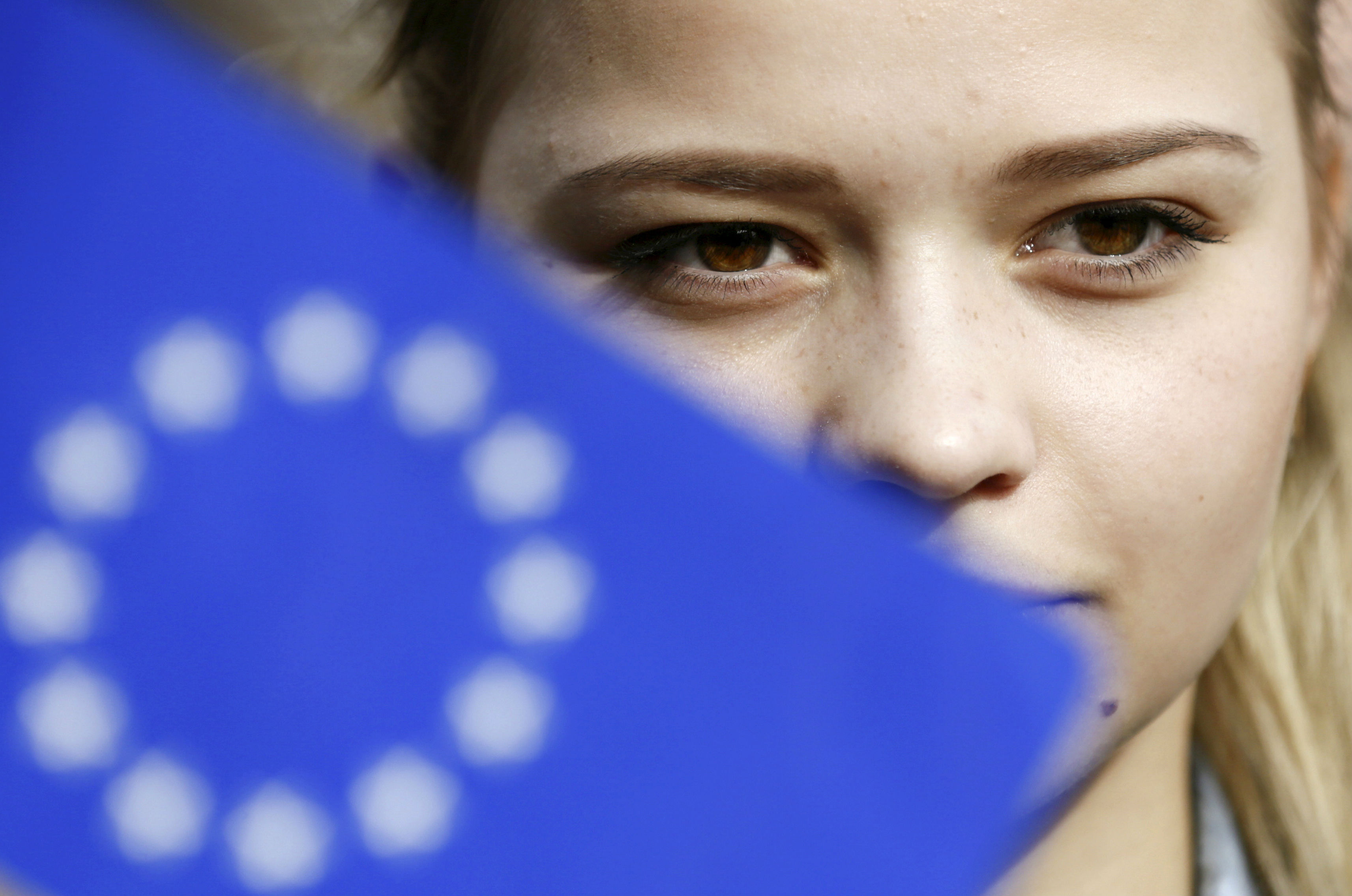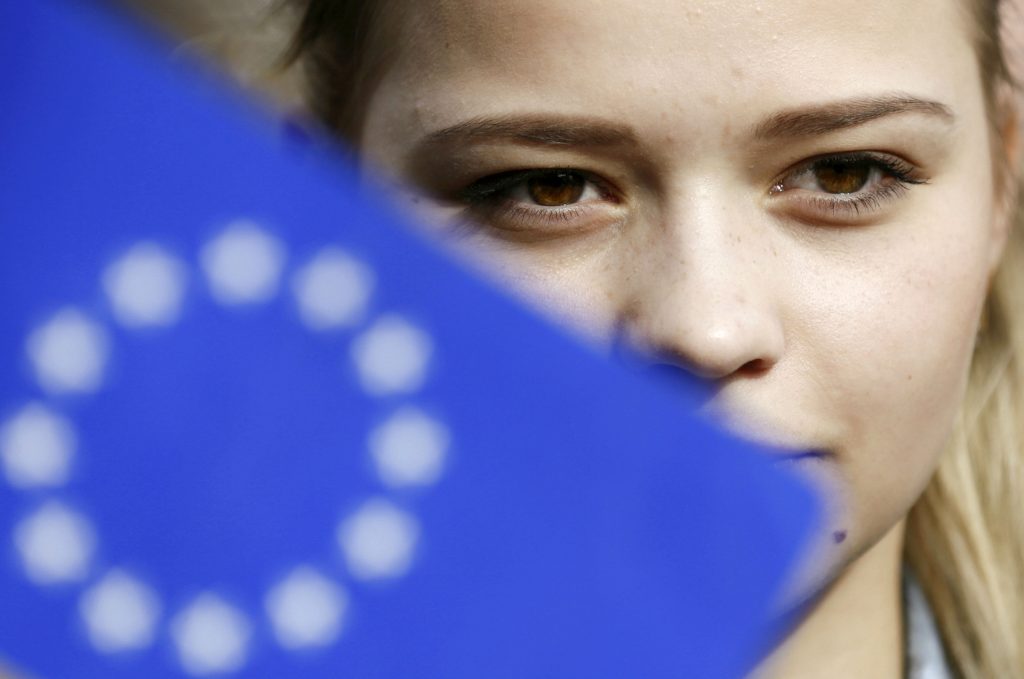 In a recent referendum, the Dutch people rejected the EU-Ukraine association agreement. Or rather, it was rejected by a majority of the just over 30 percent of Dutch people who decided to participate in this—for lack of a better word—joke.
In a recent referendum, the Dutch people rejected the EU-Ukraine association agreement. Or rather, it was rejected by a majority of the just over 30 percent of Dutch people who decided to participate in this—for lack of a better word—joke.
On the day of the referendum, a cartoon with the statement, “If you are voting against, find Ukraine on the map,” circulated wildly in Dutch media and on Ukrainian social networks. GeenPeil, one of the main organizations behind the “no” campaign, made no secret that it neither knew anything about Ukraine nor cared about it. Its campaign materials described Ukraine as “a country suffering from a civil war where fascist militias roam the streets,” a statement that sounds like it was copy-pasted from RT or Sputnik News. At the same time, it seemed to have no problem seeking help from far-right figures like Dutch politician Geert Wilders and British politician Nigel Farage.
If one is to give the “no” camp the benefit of the doubt, one could argue that it represents legitimate concerns that the EU, with its current inability to get either its borders or its finances under control, is simply not fit to handle a large, poor, corrupt, and troubled country like Ukraine.
But there is little evidence that this is what the rejection was really about. The association agreement mainly concerns trade. It will give Ukraine a chance to modernize its Soviet-era production and enter the world market, and will give EU citizens many investment opportunities in Ukraine. In other words, it presents Ukraine with a path out of poverty and Russian dependence.
Unsurprisingly, there has been a lot of fuss that the agreement will lead to “open borders” between EU countries and Ukraine. This is simply not true. Ukrainians will get visa-free travel throughout the EU, but the maximum duration of visits will be ninety days. Work visas will still be required and will be processed separately. Sijbren de Jong, an analyst with the Hague Centre for Strategic Studies, noted that the treaty is ordinary and similar to the kind the EU has with many countries, including Chile, Jordan, and Moldova. He put it well: “Interestingly, not a soul raised a finger back when these agreements were negotiated.”
Yes, Ukraine is indeed corrupt, but that was what the Euromaidan revolution was all about. In the excellent documentary “Winter of Fire,” one gets a fine picture of the revolutionaries who sent bribetaker-in-chief, former President Viktor Yanukovych, fleeing. Far from the Kremlin’s smears calling them fascists who wanted to ban the Russian language, these were simple ordinary people who wanted what the Dutch now take for granted—a “normal” country with rule of law and strong democratic institutions.
A closer relationship with the EU is seen as a guarantee for that. After all, it was Yanukovych’s attempt to scrap the negotiations for an association agreement that triggered the first protests.
The unfortunate legacy of totalitarianism is a weak civil society and an “eat or be eaten” approach that is present even at the highest levels of government. From this comes the belief that being in power is about serving yourself and your cronies, hence the corruption. The Ukrainian people are now trying to change that, but they need all the help they can get.
Painful reforms have often been possible in many post-communist countries because of the prospect of EU membership. For example, thanks to the pressure that the visa liberalization process provided, Ukraine now has the National Agency for Prevention of Corruption, a civil service law, and anti-discrimination amendments in its work code.
There is hope for Ukraine. One needs only to compare the Ukrainian reaction to the Panama Papers with the Russian one. Whereas the latter mainly included silly accusations of “Western slander,” even supporters of Ukrainian President Petro Poroshenko agreed that he is a citizen like everyone else, a head of state can’t do whatever he wants, and the important issue is the degree of responsibility. In other words, the response was more or less similar to how revelations of politicians with offshore money would be discussed in the Netherlands.
Robert van Voren, a Dutch professor of Post-Soviet Studies and prominent human rights activist, writes that he is “ashamed” of his people “who do not understand the price of freedom” or “the psychological importance of knowing there are others by your side.” The latter is particularly important for a country fighting a war. With the resignation of Prime Minister Arseniy Yatsenyuk and the appointment of a more loyal prime minister, reformers in Kyiv may see their position weakened. The Kremlin will surely not hesitate to exploit the result of the referendum in its propaganda as a sign that the West has abandoned Ukraine. Division, cynicism, and lack of faith in Western institutions like the EU is what Putin feeds on.
The Dutch—once victims of Nazi occupation, and later benefactors of EU subsidies and a common market that allows their products to be on the shelves of every supermarket in Europe (including in Ukraine)—should know better. Instead of standing with the people who paid for the association agreement in blood, they chose to be Putin’s useful idiots. Shame indeed.
Aaron Korewa is a Visiting Fellow at The McCain Institute for International Leadership. The views expressed here are solely those of the author and do not represent the opinions of The McCain Institute.
Image: A woman attends a flash mob to support a European treaty deepening ties with Ukraine on the eve of a referendum held in the Netherlands, in Kyiv, Ukraine, in this April 5, 2016 file photo. REUTERS/Valentyn Ogirenko/Files
